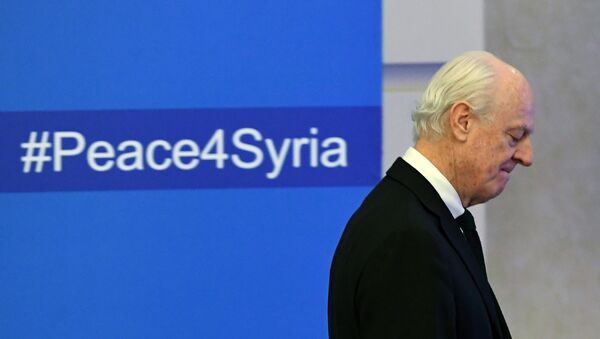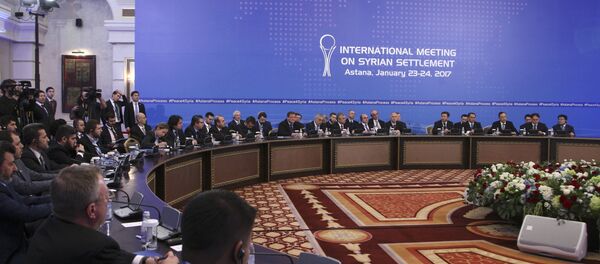"All stakeholders should support the commitment of the sides that are party to the ceasefire that entered into force in December 2016… We are encouraging the guarantors of the ceasefire to create a mechanism to implement the consolidation and de-confliction ceasefire measures, and to see what else can be done to build confidence," Mistura said at the opening of the Syrian peace talks in Astana, as quoted in the UN press statement.
The latest ceasefire was brokered by Russia and Turkey and was approved by the UN Security Council in late 2016, coming into force just as the year ended. The Russian-Turkish-Iranian-backed Astana talks kicked off earlier on Monday, with government and opposition representatives holding direct talks for the first time.
The ceasefire is more likely to hold if an oversight mechanism is introduced, the UN envoy stressed, noting that previous agreements had failed partly due to a lack of control and oversight.
"The chances of success will be greater if the parties here are able to agree on a mechanism to oversee and implement nationwide ceasefire… A mechanism to oversee and implement a nationwide ceasefire — we didn’t have it in the past, that’s the reason why often we failed," he added.
"We will help the Syrians and the guarantors here in Astana to succeed, because if Astana succeeds, Syrians succeed, and the UN will have a better chance of re-launching effective intra-Syrian negotiations in Geneva," de Mistura said at the opening of the Syrian peace talks in Astana, as quoted in the UN press statement.
The Russian-Turkish-Iranian-guaranteed Astana talks kicked off earlier on Monday, with government and opposition representatives holding direct talks for the first time. Earlier in January, the UN envoy confirmed that the talks will be followed by a UN-mediated meeting in Geneva on February 8.
Never miss a story again — sign up to our Telegram channel and we'll keep you up to speed!



